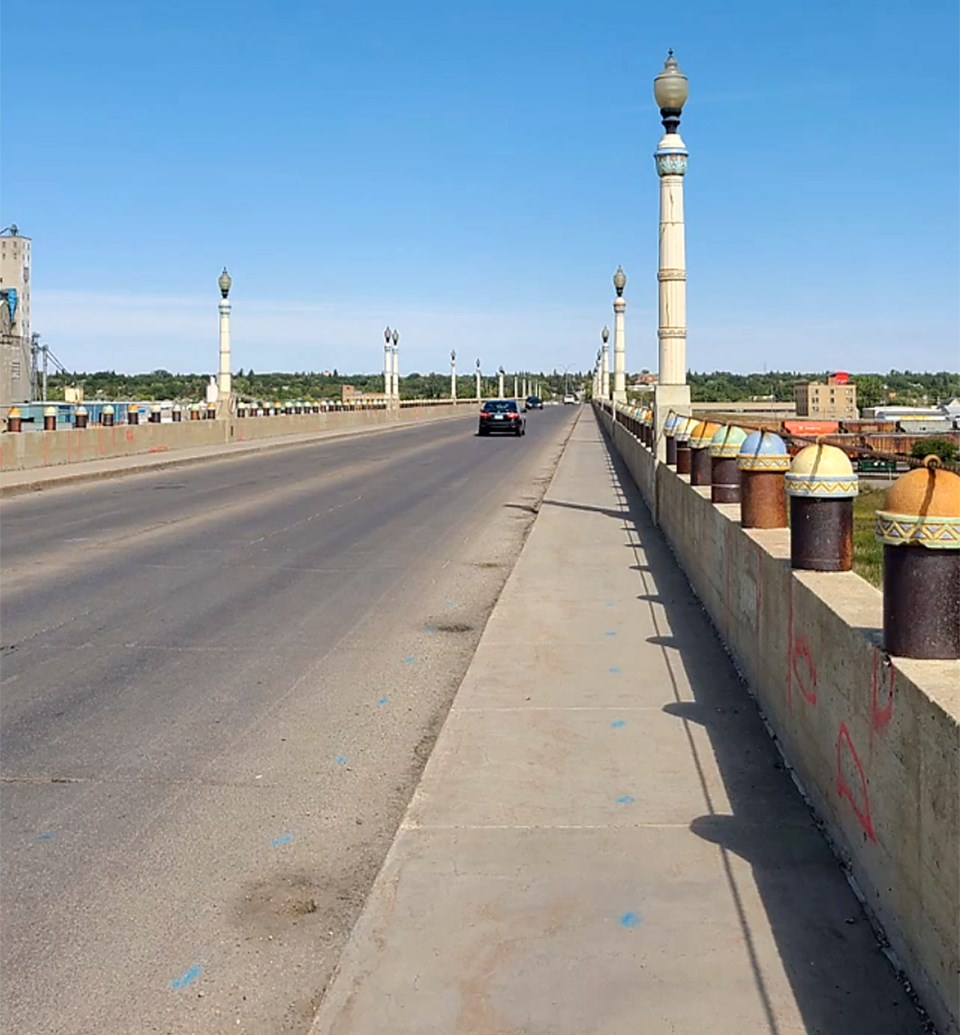MOOSE JAW — The City of Moose Jaw is likely responsible for paying most of the $25.1 million costs to rebuild the Thunderbird Viaduct, based on a recent decision by the Canadian Transportation Agency (CTA).
The city has been negotiating with Canadian Pacific Kansas City (CPKC) Limited for several years about cost-sharing for the rehabilitation of the Fourth Avenue Bridge, but neither party could reach an agreement and sought mediation through the CTA, a budget report explained.
The agency held mediation sessions in July 2022 and January 2023, but neither meeting resulted in an agreement. So, in the spring of 2023, city hall applied to the CTA seeking orders to:
- Determine whether the proposed bridge work constituted reconstruction or maintenance
- Apportion the costs of the proposed work equally between the City of Moose Jaw and CPKC
Both parties filed final submissions on July 19, 2024, and on Dec. 16, 2024, the CTA released its decision, agreeing with the municipality that the proposed work is “of such magnitude” that it constituted a rebuild of the bridge’s superstructure, for which the originally 1929 agreement did not apply, the report said.
However, the CTA did not divide the costs equally between the parties. Instead, it ruled that of the work that constituted the basic grade (road) separation:
- Moose Jaw was responsible for $21.9 million (85 per cent)
- Of the remaining 15 per cent, CPKC was responsible for over $3 million and Canadian National Railways was responsible for over $200,000
- The city was responsible for 100 per cent of the additional features, such as the bollards and artwork
- Moose Jaw was responsible for all maintenance costs of the substructure, superstructure and retaining walls
- CPKC and CN were responsible for maintaining all railroad-related items like tracks and drainage
The CTA ruled that the project was primarily a road development, and, in referencing its guidelines to apportion costs, said that for basic grade separation projects, the road authority (the municipality) is responsible for 85 per cent of costs and the rail company(s) is responsible for 15 per cent, the budget report said.
“The resource tool also states that the costs of construction and maintenance of additional features are normally to be paid by the party requesting those features,” the document stated.
While the CTA decision was “not favourable” to Moose Jaw, it provided clarity about the railway companies’ funding obligations, the report continued. So, this year administration will engage with CPKC to discuss options and determine the latter’s willingness to contribute to — and help advance — this project.
The report added that city council and administration must consider the function of the Thunderbird Viaduct beyond being simply an “engineered structure” to one that provides a valuable service to the community.
“The decision is one that we were hoping would result in more cost-sharing than was awarded, but perhaps CPKC would be saying it should be less,” Andrew Svenson, city solicitor, said during the Jan. 23 budget meeting.
“So (the decision is) somewhere in the middle of where the parties went to the board for a decision, but we are currently evaluating that decision and options going forward,” he continued.
The city could appeal the CTA’s decision — it must do so by Sunday, Feb. 2 — but because of how the report is worded, there’s little chance the appeal would succeed, said Svenson.
Further, the city has no automatic right to appeal and must seek leave from a higher court to do so — but only if there is an error in how CTA applied the law, he noted. The city can’t find any errors because of how the report is worded, as some phrases it disagrees with are written as findings of fact more than law.
Svenson added that a federal court is the ultimate authority to which the city could appeal, not the federal minister of transportation.




